Recent news from Kuwait has showcased the vocal opposition of Bader al-Dahoum, an outspoken member of parliament. The Constitutional Court disqualified him from his parliamentary seat on the basis of a constitutional article that disqualifies anyone convicted of insulting the country’s emir (something with which Dahoum was charged in 2014) from running for office. This move has been widely interpreted as an effort by the country’s executive branch (chiefly the monarchy) to silence opposition within the National Assembly.
This instance points to the growing presence of tribal figures in opposition coalitions pressing for electoral and parliamentary reforms, such as ending the recently imposed single non-transferable vote (SNTV) electoral system. It also highlights the challenge of sustaining these coalitions within Kuwait’s present political institutions.
Dahoum did not hold back in the parliamentary session prior to his expulsion. He demanded (with other opposition members of parliament, or MPs) the “grilling” of Prime Minister Sabah al-Khalid al-Sabah, a member of the ruling family, over “selectivity in the application of the law.” Importantly, Dahoum does not hail from longstanding but disparate liberal opposition circles in urban districts — instead, he is a member of the sizeable, traditionally “loyalist” ‘Awazim tribe. He was elected in the country’s District 5, which has long been a stronghold of tribe-affiliated candidates; he is also a member of the opposition coalition Thwabet al-Umma.
Historically, tribes in Kuwaiti politics have been considered reliable clients of the monarchy and appointed government officials. So-called “service MPs” defended the prerogatives of the ruling family in exchange for the opportunity to broker government services for tribal members. Between 1960 and 1980, nationalist-inspired opposition among the urban, non-tribal population (including those often referred to as hadar) considered policy changes to naturalize tribal communities as Kuwaiti citizens. In 1981, changes to the electoral law sought to balance opposition voices in parliament with quiescent tribal representation.
Our recent research in the journal Middle East Law & Governance discusses mounting opposition to the government from within Kuwait’s tribes, analyzing their organizational advantages in contesting elections. While formal political parties are officially banned in Kuwait, we find that tribal structures are able to facilitate some of the functions of parties: regulating candidate entry into elections and coordinating members’ votes behind preferred candidates. And while ideologically based political blocs like the Muslim Brotherhood affiliated Islamic Constitutional Movement (ICM) share some of the organizational advantages that tribes enjoy, they do not have the advantage of their primary constituents being localized within specific districts or the variety of informal social institutions affiliated with tribes, since the latter are associated with family units.
So-called “tribal primaries,” for example, designate preferred candidates for particular tribes. They have attracted criticism from some younger members of tribes, as well as from non-tribal Kuwaitis, as constituting an unfair advantage for designated candidates. Yet recent government efforts to crack down on the practice, after long permitting or even facilitating them, have had little effect. Tribes have found creative ways of circumventing restrictions on primaries, such as holding primaries on commercial air flights as a means of avoiding security personnel. Wide-ranging family ties and frequent social engagements further encourage information-sharing about preferred candidates.
Within the paper, we suggest that some tribal candidates have used these organizational advantages — bolstered by family and social ties and geographic proximity — to contest the Kuwaiti monarchy’s efforts to regulate democratic practices in the country, rather than solely pursue individual benefits for their supporters. They also manage to build out bases of support beyond members of their own tribe, suggesting that ascriptive identities like tribal ties can serve as a foundation for political coalition-building rather than an electoral dead-end.
A case study in political maneuvering
Musallam al-Barrak, whose political career we briefly profile, exemplifies this kind of tribal coalition-building, drawing support not only from members of the Mutayri tribe but also from youth activists and trade unionists. While his father was seen as a fairly standard “service MP,” and indeed Musallam himself was initially seen that way, Musallam al-Barrak later joined with former parliamentary speaker and longstanding hadar opposition figure Ahmed al-Saadoun to form the Popular Action Bloc: an ideological political organization advocating public oversight of government spending, continued populist social policies, and protection of the constitution in 2001. While Barrak himself openly refused to participate in tribal primaries on grounds that they were nondemocratic, he clearly benefited from the support of fellow tribe members in securing the highest vote totals within District 4 in 2006 and 2012, setting a national record for number of votes in 2012.
Unfortunately, Barrak also demonstrates the difficulty of sustained opposition in the face of the Kuwaiti monarchies use of lèse majesté laws and electoral policies to bar opposition figures from political participation and forestall the formation of a broad-based opposition coalition. In 2013, Barrak was sentenced to five years of hard labor for a speech during protests in 2012 in which he addressed the emir: “We will not let you, your highness, take this country into autocracy,” referencing his opposition to the emir’s imposition of the present SNTV electoral system.
After leaving prison in April 2017, Barrak was sentenced later that year to nine years in prison for participating in storming the parliament during protests in 2011, and since that time has resided outside of Kuwait. Efforts to negotiate the return of Barrak and other opposition figures to Kuwait in fact forms one of the fraught issues currently dividing government and opposition within the parliament (the Kuwaiti cabinet’s 15 appointed ministers have voting rights equal to the 50 elected MPs, except on ministerial votes of no-confidence).
Dahoum’s profile as a political figure is similar. He was active in pro-democracy mobilization during the 2010s; elected to parliament in the first election of 2012, where his support for draconian laws fueled some questions about his commitment to reform; boycotted several subsequent elections over unilateral changes to the electoral law; was barred from running in 2016 over his lèse majesté conviction; and finally elected in 2020 (with the second-highest number of votes in his district), albeit having sidestepped the formal tribal primaries.
The ‘Awazim tribe and its affiliated MPs did not adopt a uniform position on Dahoum’s expulsion, reflecting both the willingness of some within once-“loyalist” tribes to contradict the government and the challenges of coalition-building even on favorable ground. While two of the three remaining ‘Awazim MPs from District 5 condemned Dahoum’s expulsion, none of the ‘Awazim MPs elected in the more central Districts 1 and 2 did. This likely reflects the pressures against political coalition-building due to the SNTV system, as Daniel Tavana notes. The sheikh of the ‘Awazem tribe, Faleh bin Jameh, was left to split the difference between condemning the ‘Awazem MPs who failed to stand by Dahoum and hoping that all could be reconciled to the royal family.
The “tribalization” of politics?
Segments of Kuwait’s non-tribal population have charged that, with the rising political mobilization of tribes, political life in the country is becoming “tribalized” — meaning democracy has become centered around clientelist transactions rather than higher principles. Yet available polling data suggests that tribal and non-tribal communities alike in Kuwait place a similarly high “non-material” value on democracy, even as the SNTV system (itself opposed by many tribal MPs) promotes fragmentation in the National Assembly and clientelist politics.
Moreover, by examining elections between 1992 and 2016, we find that tribe-affiliated candidates have not made notable gains in Kuwait’s parliament. Tribe-affiliated Kuwaitis tend to reside in electoral Districts 4 and 5, which (since 2006 redistricting) have significantly more voters-per-MP than more urban Districts 1 through 3. Changes to the electoral system have done more to change the composition of tribal representation in parliament than the overall number of tribe-affiliated candidates. The switch to SNTV, for example, undermined the organizational ability of the largest tribes in much the same way as we would expect for large political parties — yet seats lost by candidates from larger tribes such as the ‘Awazim or Mutayri were generally picked up by smaller tribes.
Furthermore, tribes’ organizational acumen has tended to improve over time. Even after setbacks due to the switch to SNTV, candidates affiliated with the largest tribes recovered earlier levels of representation. This occurred even as smaller tribes retained some gains, leaving the National Assembly elected in 2020 with the largest number of tribe-affiliated MPs (29) of any since the restoration of the parliament in 1992.

Although the Kuwaiti political scene is rife with divisions, these candidates can rely on tribal ties to mobilize supporters both at the polls and against top-down efforts to exclude them from political participation.
While hardly conclusive, these trends reinforce the idea that future opposition to the Kuwaiti government in favor of democratic freedoms — at least when it comes to elections and parliamentary procedure — is likely to come in part from tribe-affiliated activists like Dahoum. Although the Kuwaiti political scene is rife with divisions, these candidates can rely on tribal ties to mobilize supporters both at the polls and against top-down efforts to exclude them from political participation. And even as some tribal candidates may pursue starkly different policy agendas from their more urban counterparts, successive elections have shown that the purported “bedouin-hadar” divide is not an insurmountable barrier to opposition coordination.
Still, while the SNTV system has proved only a temporary hurdle for tribal representation in parliament, it has continued to hinder the development of organized political blocs that function effectively as parties — no doubt as the monarchy prefers. As Luai Allarakia and Hamad Albloshi note, present opposition has splintered into a more hard-line faction around Dahoum (incorporating the ‘Awazim tribe and Thwabet al-Umma) and a more conciliatory faction courted by the government, consisting of the inner-district National Bloc, the Islamist Hadas organization, and representatives from the Mutayri tribe (whose affiliated candidates tend to dominate District 4 elections).
While political institutions and social divisions pose an ongoing obstacle to sustained opposition cooperation, there is some potential for cross-group alliances to come together to push for specific policies such as changes to the electoral law or changes to the judicial system. Yet while representatives from within Kuwait’s tribes lend heft to these alliances of convenience, it remains to be seen whether they can successfully press for institutional change or will be limited to forcing out individual government ministers when the opportunity presents itself.
-
Acknowledgements and disclosures
Rachel Slattery did graphic design for this post.
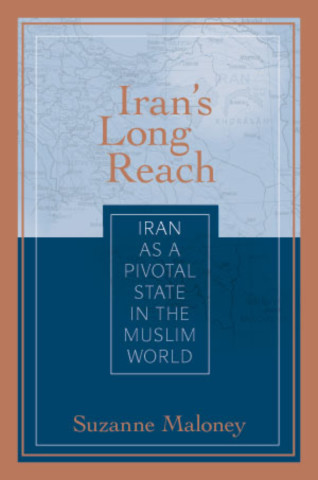
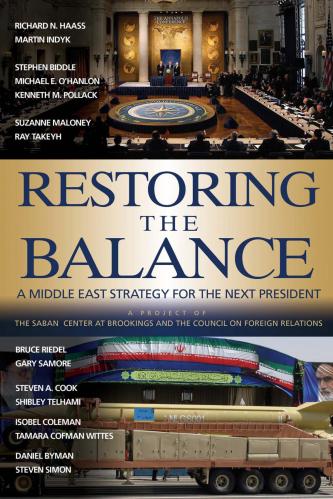
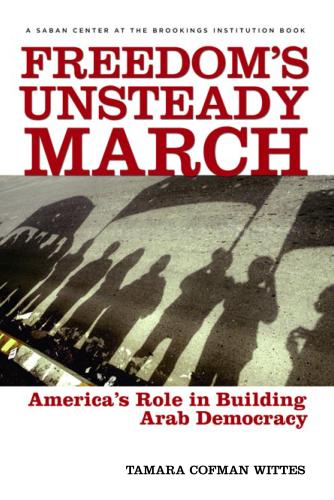
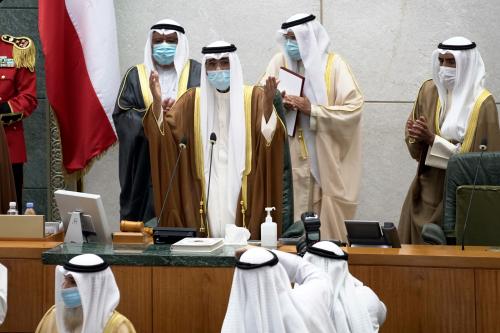

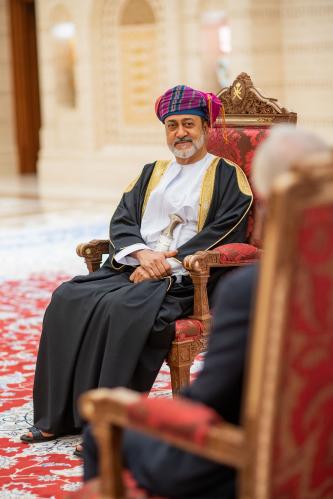
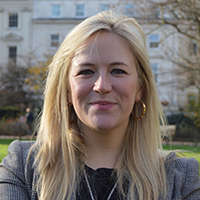
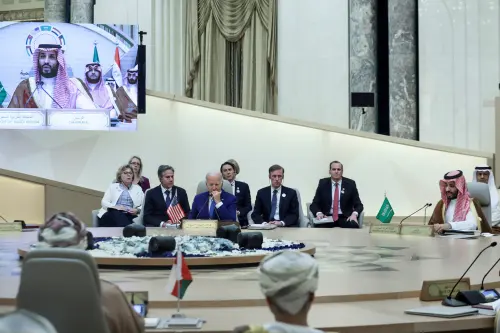
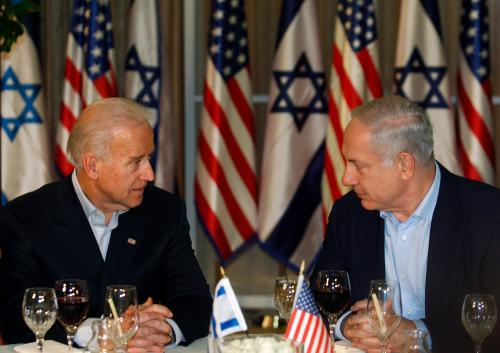
Commentary
The ‘tribal advantage’ in Kuwaiti politics and the future of the opposition
April 19, 2021